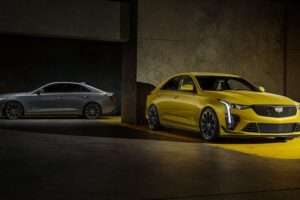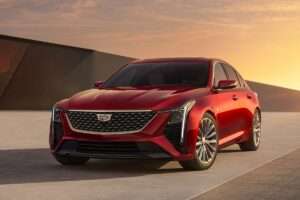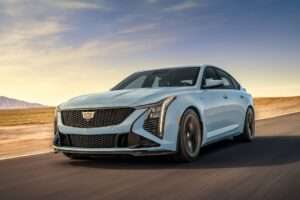Electric vehicles (EVs) are steadily gaining traction as a sustainable alternative to traditional gasoline-powered cars. However, despite their increasing popularity, several myths and misconceptions about EVs persist. These myths often stem from outdated information or misunderstandings about EV technology and infrastructure. This article aims to debunk some of the most common EV myths, providing accurate information to help consumers make informed decisions about electric vehicles.
Myth 1: EVs Have a Limited Range and Are Impractical for Long Trips
One of the most pervasive myths about EVs is that they have a limited range, making them impractical for long trips. While early electric cars did have relatively short ranges, modern EVs have made significant advancements in battery technology. Many current models offer ranges of over 200 miles on a single charge, with some high-end models exceeding 300 miles.
Additionally, the expansion of charging infrastructure has made long-distance travel in an EV more feasible. Fast-charging stations, which can recharge an EV battery to 80% in about 30 minutes, are becoming increasingly common along highways and in urban areas. With proper planning and the use of navigation apps that highlight charging stations, long trips in an EV are not only possible but also convenient.
Myth 2: EVs Are Too Expensive
Another common misconception is that EVs are prohibitively expensive. While it’s true that the upfront cost of some electric vehicles can be higher than their gasoline counterparts, this gap is closing rapidly. The cost of EV batteries, which are a significant component of the vehicle’s price, has been decreasing over the years.
Moreover, EV owners can benefit from various financial incentives and rebates offered by governments and organizations. These incentives can significantly reduce the overall cost of purchasing an electric vehicle. Additionally, the total cost of ownership for an EV is often lower than that of a gasoline vehicle due to lower fuel costs, reduced maintenance expenses, and potential savings on taxes and fees.
Myth 3: EVs Are Not Environmentally Friendly Due to Battery Production
Some skeptics argue that the production of EV batteries negates their environmental benefits. While it’s true that battery production has an environmental impact, studies have shown that EVs still have a lower overall carbon footprint compared to internal combustion engine vehicles.
The environmental benefits of EVs become more apparent over the vehicle’s lifetime. EVs produce zero tailpipe emissions, which significantly reduces air pollution and greenhouse gas emissions. Additionally, advancements in battery recycling and the use of renewable energy sources for manufacturing are further mitigating the environmental impact of EV production.
Myth 4: EV Batteries Don’t Last Long and Are Expensive to Replace
Concerns about battery longevity and replacement costs are common among potential EV buyers. However, modern EV batteries are designed to last for many years, with most manufacturers offering warranties of 8 years or more. In real-world conditions, many EV batteries maintain a significant portion of their capacity even after a decade of use.
Furthermore, the cost of EV batteries has been decreasing, and advancements in battery technology continue to improve their durability and efficiency. Some studies suggest that the cost of battery replacement may be lower than anticipated, and in some cases, the battery can outlast the vehicle itself.
Myth 5: EVs Are Slow and Lack Performance
The notion that EVs are slow and lack performance is outdated. In reality, electric vehicles offer impressive acceleration and handling. The instant torque provided by electric motors allows EVs to achieve rapid acceleration, often outperforming their gasoline counterparts in this regard.
Many EV manufacturers are producing high-performance models that cater to driving enthusiasts. These vehicles deliver exceptional speed, agility, and overall driving experience. The growing popularity of electric sports cars and high-performance EVs is a testament to their capabilities.
Myth 6: There Aren’t Enough Charging Stations
A common myth is that there are insufficient charging stations to support widespread EV adoption. While the availability of charging infrastructure was once a concern, significant investments have been made to expand the network of public chargers.
Today, there are tens of thousands of public charging stations worldwide, with more being added regularly. Fast chargers, destination chargers, and home charging options provide multiple avenues for keeping an EV charged. Many governments and private companies are continuing to invest in charging infrastructure, further alleviating concerns about accessibility.
Myth 7: EVs Are Not Suitable for Cold Weather
Some people believe that EVs are unsuitable for cold weather due to reduced battery performance in low temperatures. While it’s true that extreme cold can affect battery efficiency, modern EVs are equipped with thermal management systems that mitigate the impact of cold weather.
Preconditioning the battery and cabin while the vehicle is still plugged in can help optimize performance in cold conditions. Additionally, advancements in battery technology are continually improving cold-weather performance, making EVs a viable option in various climates.
Myth 8: EVs Are Only for Short Commutes
Another misconception is that EVs are only suitable for short commutes and city driving. While EVs are indeed well-suited for urban environments, they are equally capable of handling longer journeys and varied driving conditions.
With increased battery ranges and a growing network of charging stations, EVs are suitable for a wide range of driving scenarios, from daily commuting to weekend getaways and road trips.
Embracing the Future of Transportation
Debunking these common EV myths is essential for promoting a more accurate understanding of electric vehicles and their benefits. As technology continues to advance and infrastructure expands, the adoption of EVs is set to accelerate. Electric vehicles offer a sustainable and efficient alternative to traditional gasoline-powered cars, providing a cleaner and more enjoyable driving experience.
By dispelling these myths and embracing the facts, consumers can make informed decisions about transitioning to electric mobility. The future of transportation is electric, and with the right information, we can all contribute to a greener and more sustainable world.
















Add Comment